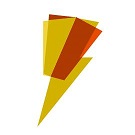Extension of the Dart Force Framework.
These are the polymer elements for Force, use these elements to create awesome realtime applications!
First of all we have ForceClientElement, it will instantiate a ForceClient connection.
<force-client url="localhost" port="4040" usePolling="true" heartbeat="600"></force-client>Force on is another element that will make it possible to listen to a certain socket request, it is the force.on("request", (message, sender) {}); wrapper.
<force-on forceClientId="fcid" request="listen" data="{{data}}" profile="{{profile}}"></force-on>This element will expose:
- data that can change on every push from a client or server
- profile that is been attached to your socket connection
Force register will help you register to a cargo collection (file based, mongodb, ... or your own implementation on top of cargo)
<force-register forceClientId="fcid" name="todos" collection="{{todos}}" revert="true" limit="10"></force-register>So this will get you a todos collection with 10 results and the last ones that are been added first.
You can use ForceElement to access ForceClient instance and to have more functionality tight to Force.
@CustomTag('chat-app')
class ChatApp extends ForceElement {
- add more polymer elements to assist you with on development
If you'd like to contribute back to the core, you can fork this repository and send us a pull request, when it is ready.
If you are new to Git or GitHub, please read this guide first.
Realtime web framework for dart that uses force MVC & wired source code
Follow us on twitter https://twitter.com/usethedartforce
Follow us on google+
